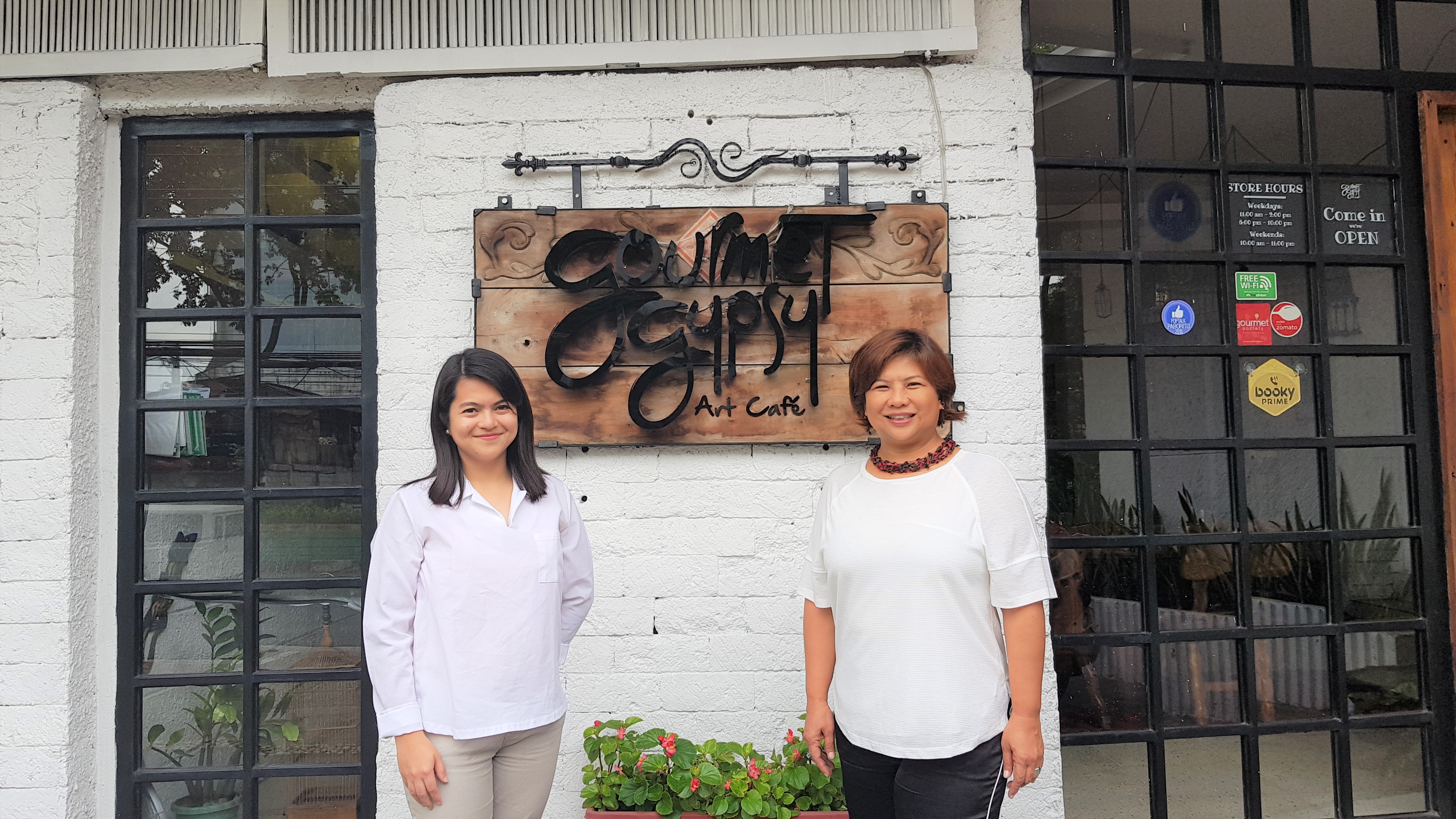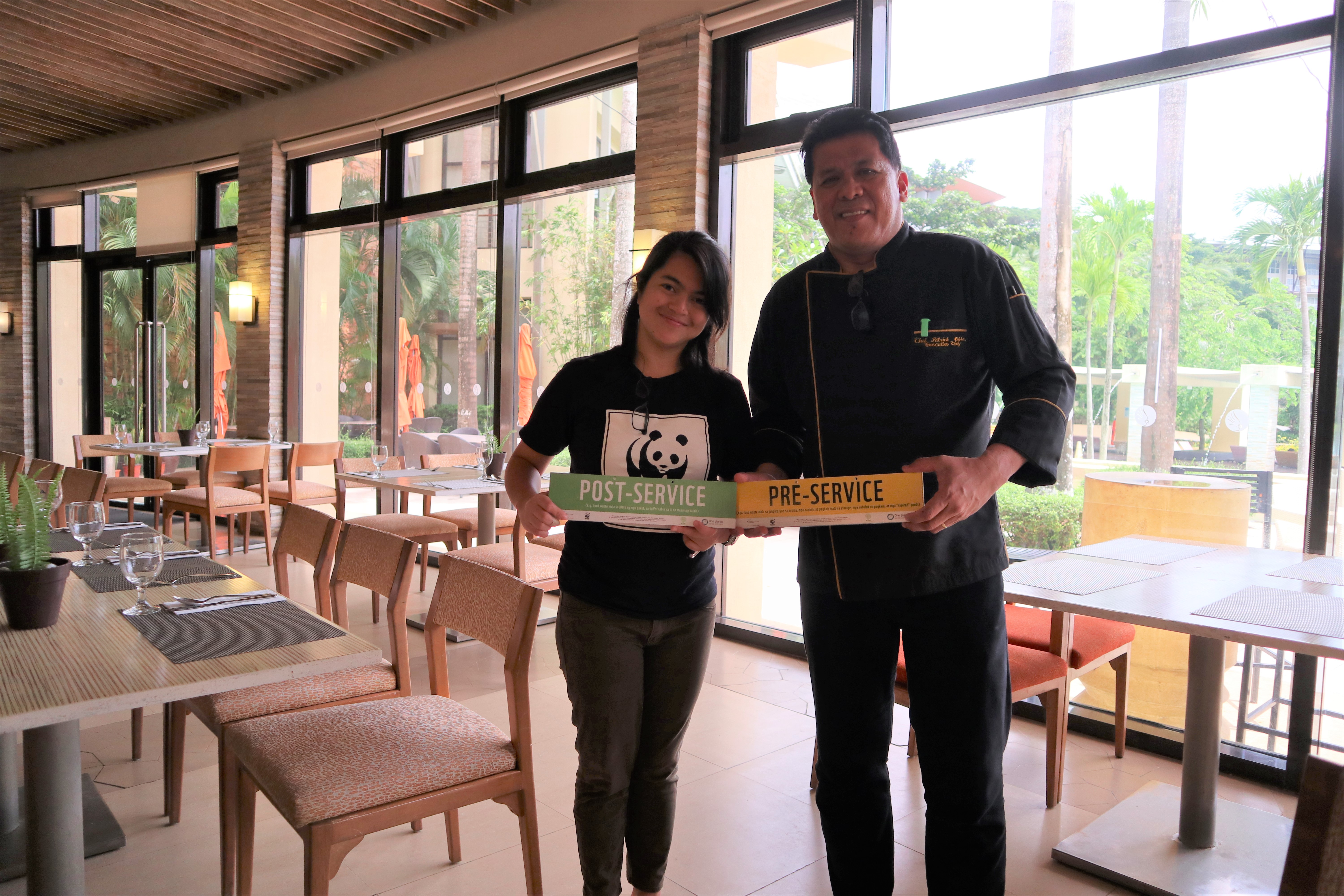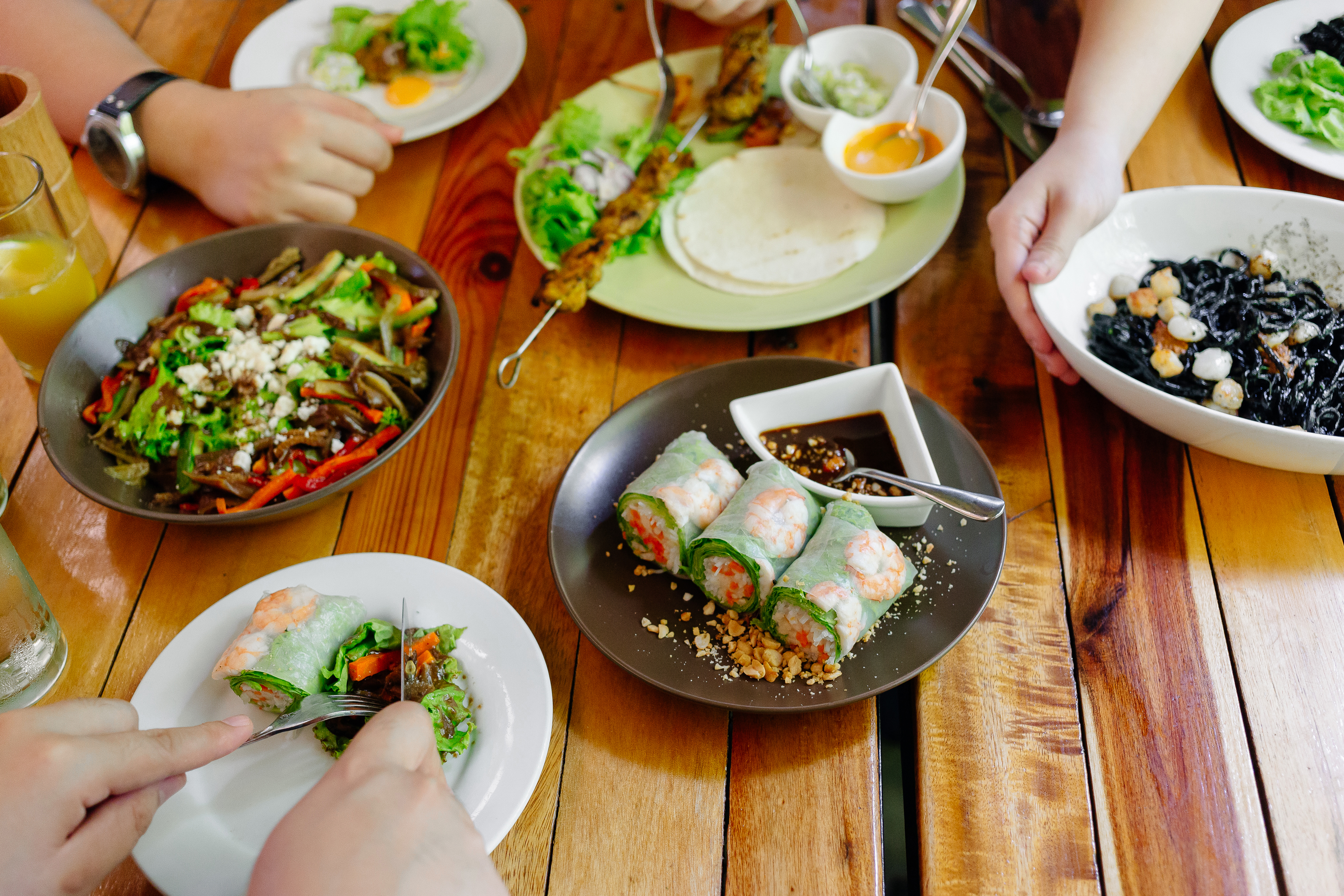Gourmet Gypsy Art Cafe, Pico De Loro, and Earth Kitchen join #TheSustainableDiner Movement
October 2018
The Sustainable Diner team of World Wide Fund for Nature (WWF) Philippines will end the third quarter of 2018 with three more restaurant partnerships across Quezon City and Tagaytay City, all with the goal of promoting Sustainable Consumption and Production in the local food service industry.

Alexa Jeanne Lasch, The Sustainable Diner’s Food Service Specialist, with Waya Wijangco, Chef and Owner of Gourmet Gypsy Art Cafe in Quezon City. Photo © Pamela Luber / WWF-Philippines
Gourmet Gypsy Art Cafe did not start out as an establishment with sustainability per se in mind, rather, the restaurant operations were crafted and implemented with the goal of wasting the least amount of resources possible. Chef Waya Wijangco runs the restaurant in a very frugal and pragmatic manner - a nod to her Ilokano roots - converting this house into a venue where students from the Open Hand School - a vocational school for adults with special needs - can work and train as cooks, servers, bakers, and administrative officers. “We started a business with the mission of helping people with special needs so what we needed was a business that was sustainably operating in the long run so we can keep on helping them,” says Wijangco. “Our current restaurant practices are what we consider sustainable because we want to increase our bottom line. It’s to make sure that we’re not wasting energy, we’re not wasting water, we’re not wasting food - it’s what makes us sustainable.” It’s not only the noble mission of this restaurant that is very good, their food too. Global cuisine meets local comfort, you’ll find honest-to-goodness dishes such as Spaghetti Al Nero, Chori Burger, and Keto Palabok, as well as sides such as Ifugao Organic White Rice, Nueva Ecija Jasponica Brown Rice, and Benguet Organic Black Rice. A meal at Gourmet Gypsy Art Cafe promises not just a unique gastronomic experience but one that’s also full of heart and appreciation for the social good.

Alexa Jeanne Lasch, The Sustainable Diner’s Food Service Specialist, holding up food waste management signs with Patrick Obia, Executive Chef of Pico De Loro Beach and Country Club. Photo © Gabriel Villalon / WWF-Philippines
Because Pico De Loro Beach and Country Club sits on a cove within the Verde Island Passage, which is considered a crucial center of marine biodiversity within the Coral Triangle, sustainable operations was a mandate that came naturally for them. As one of the thirteen coves along Hamilo Coast, whose shores serve as laying and nesting grounds for three species of turtles (Green Sea Turtle, Olive Ridley Sea Turtle, Hawksbill Sea Turtle), sustainability is simply imperative for Pico De Loro, which includes how they manage their food service establishments. “We looked at food waste management as an opportunity for us to contribute to lessening the effects of climate change locally. With the volume of guests growing every year, we see that food waste is also growing," says Maggie Garcia, General Manager of Pico Sands Hotel and Pico De Loro Beach and Country Club. “We saw that there was a need to contribute to change, however small it may be, which means that sustainability projects are not just focused on the sea or planting trees, but also in our operations and in our operating environment. Because after all, the guests come to our beautiful resort and its restaurants to enjoy and eat.”
In their bid to transform the way they manage their food service establishments across the whole resort, Pico De Loro has proudly partnered three of its restaurants with The Sustainable Diner Project: Pico Restaurant and Bar, Sun Coral Cafe, and Lagoa Restaurant. “We stopped the use of plastic straws effective May 2018, during the height of the peak season all over the resort. We are using biodegradable amenities in the hotel. We also use biodegradable cleaning agents for the kitchens and public areas. Packaging of take-away boxes have been changed to those made of environmentally friendly materials,” says Garcia. “When it comes to actual dining, we intend to raise the training and awareness of our staff, particularly on food waste, so they can in turn educate our customers, because at the end of the day it will be the diner who will order food from our menu, and we want to empower them so they are able to order just the right amount and realize that in doing this, they are contributing to the protection of our environment.”

An array of healthy and organic dishes from Earth Kitchen in Quezon City. These dishes promote the best of local flavors and produce in order to support farmers and indigenous communities in the Philippines. Photo © Ben Beringuela / WWF-Philippines
According to Melissa Yeung-Yap, founder and executive director of Got Heart Foundation, Earth Kitchen is a neighborhood farm-to-table organic restaurant in Quezon City, which was built as a way to support local farmers and indigenous communities around the Philippines. Majority of the ingredients used in the restaurant are sustainably sourced from small farmers, fishermen, and indigenous communities, which has resulted to seasonal menu offerings that promote the best produce the Philippines has to offer. Earth Kitchen also promotes mindfulness to their diners, giving them the opportunity to make good, clean, and healthy decisions when it comes to the food they consume. They partner with farmers whose produce are neither GMO nor grown using synthetic fertilizers, chemicals, herbicides, and pesticides. The dishes they serve are only flavored with natural seasonings. Some of these dishes that you can enjoy include their Squid Ink and Aligue Pasta, Pumpkin and Kesong Puti Soft Tacos, and Ube Velvet Cake.
WWF-Philippines is proud to have these three establishments as part of our latest set of partners for The Sustainable Diner Project, a pioneer project tackling sustainable consumption and production in the country. Indeed, when we all work together, it is possible for us to create change in the local food service industry.
The Sustainable Diner project, under World Wide Fund for Nature (WWF) Philippines’ Sustainable Consumption and Production, is part of the International Climate Initiative (IKI). The Federal Ministry for the Environment, Nature Conservation, and Nuclear Safety (BMU) supports this initiative on the basis of a decision adopted by the German Bundestag.
